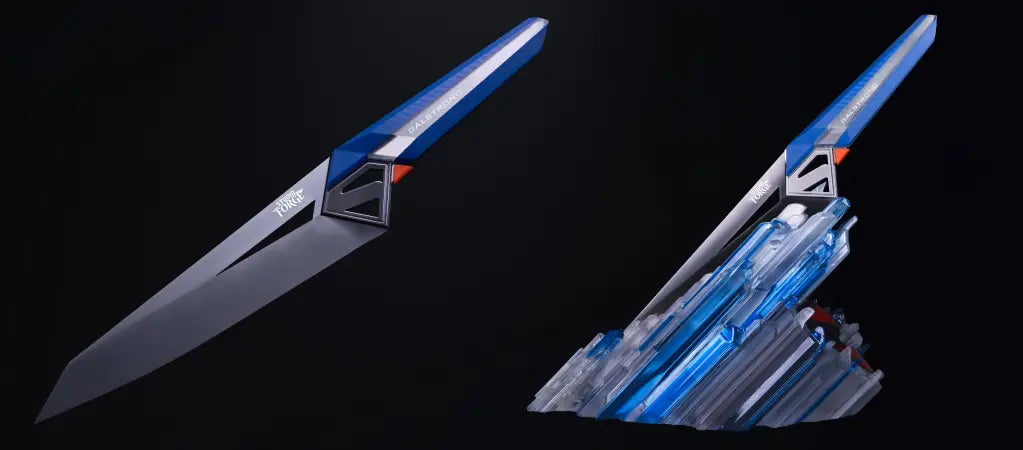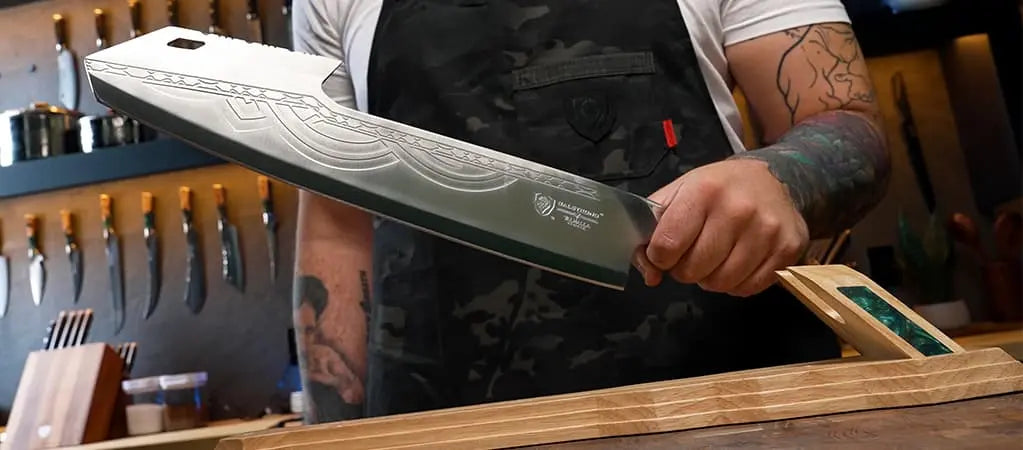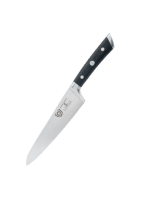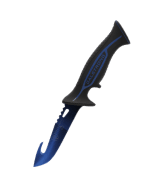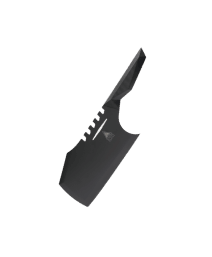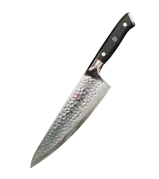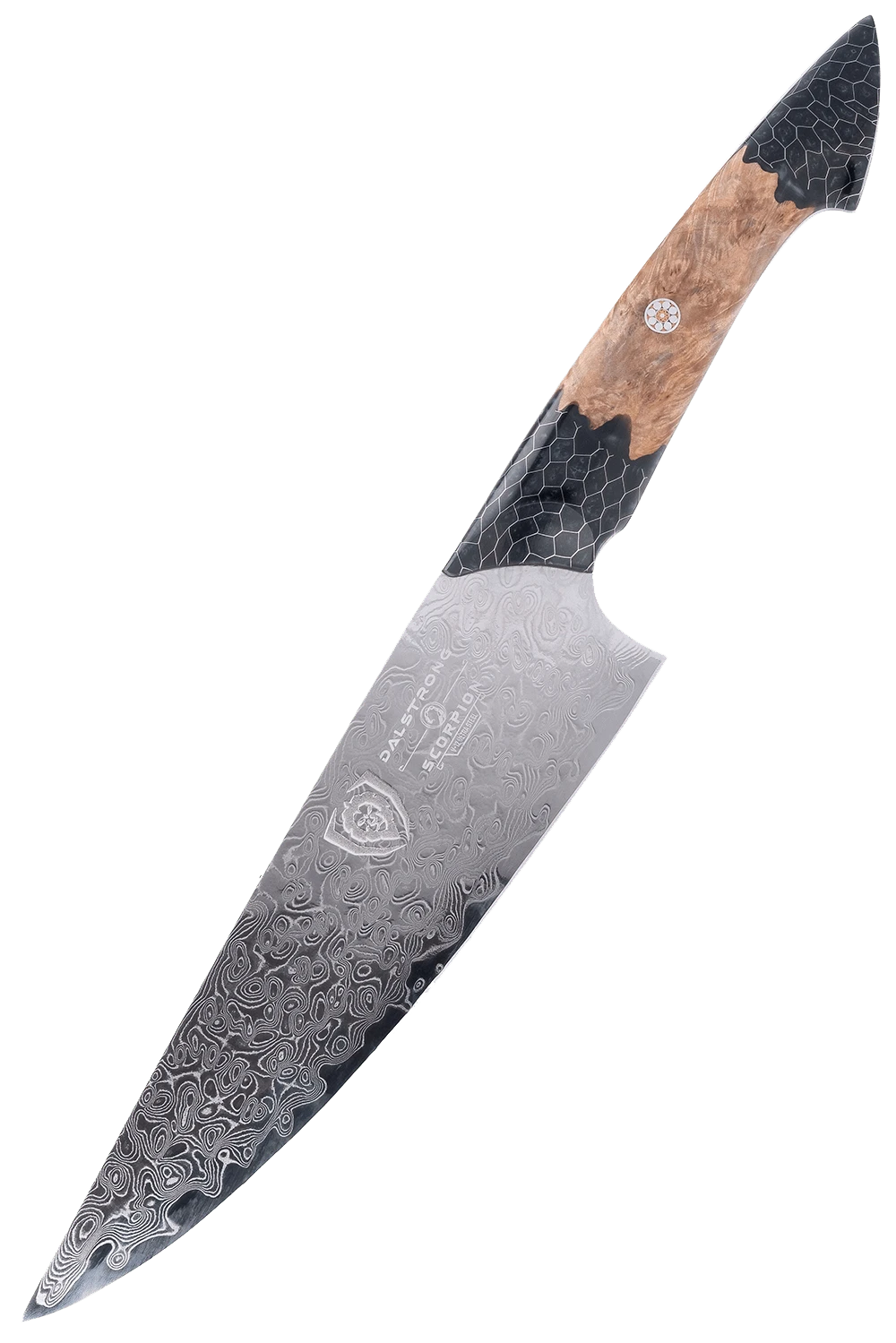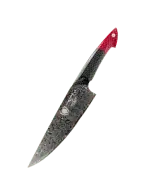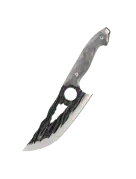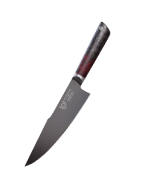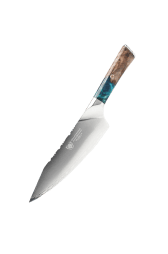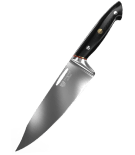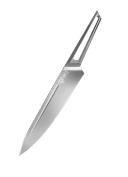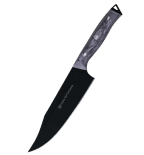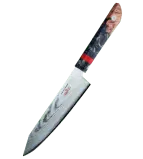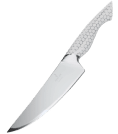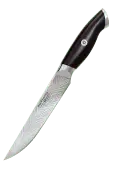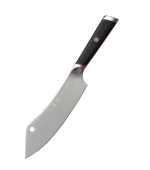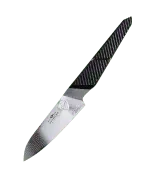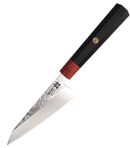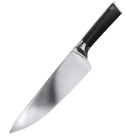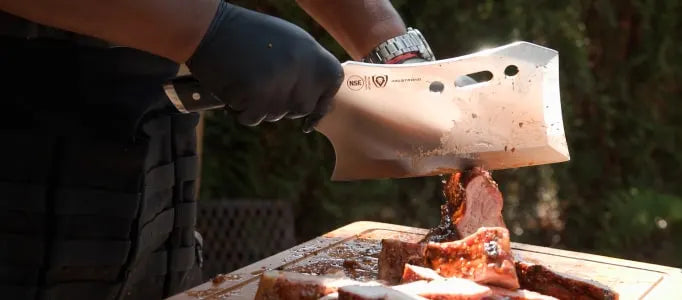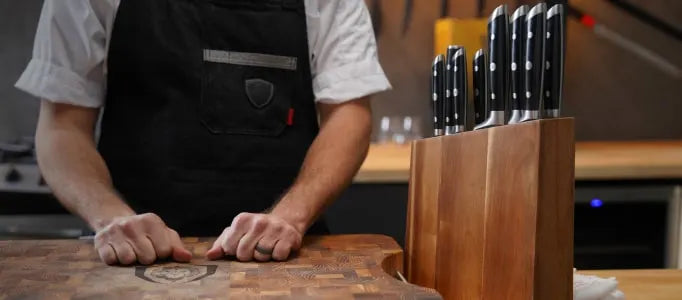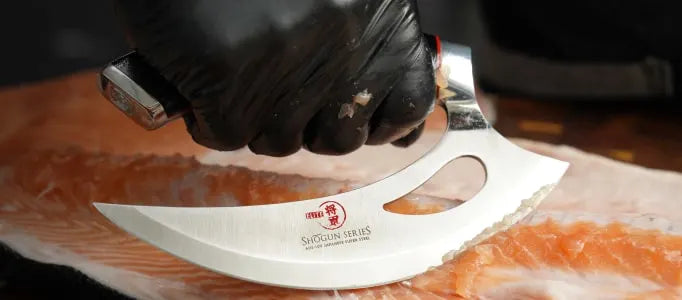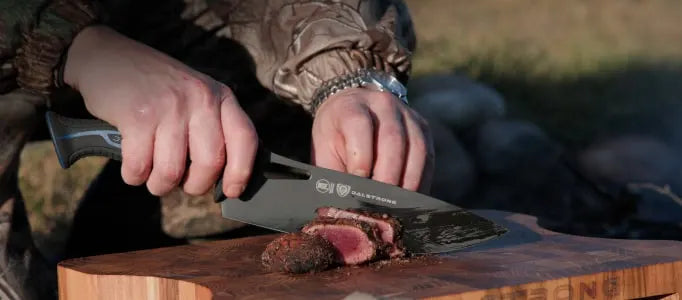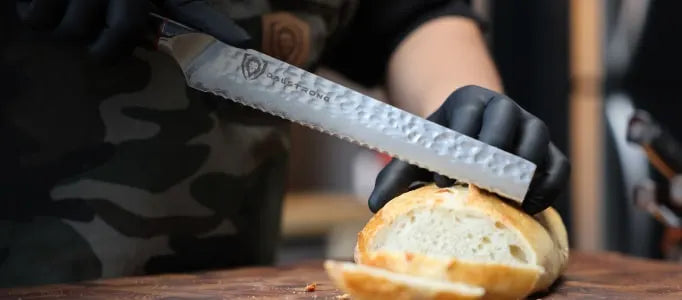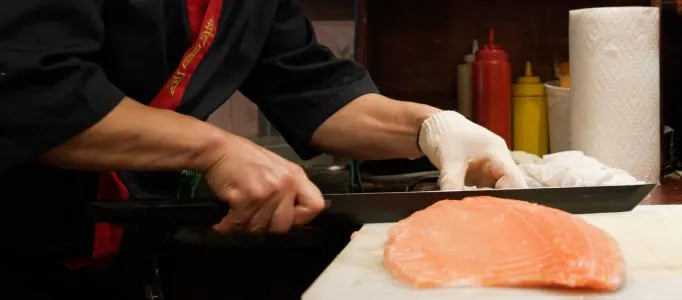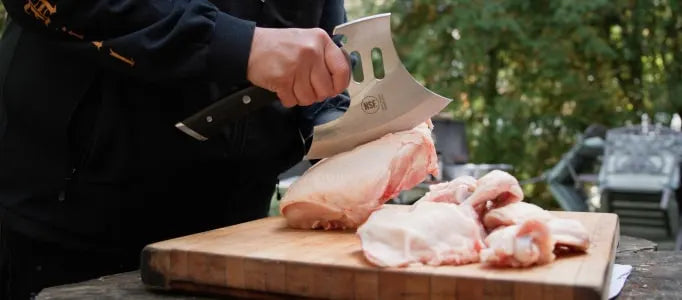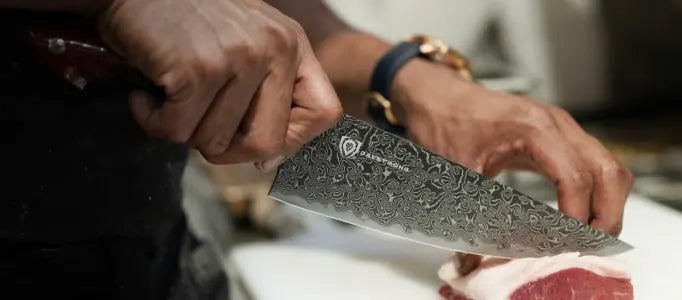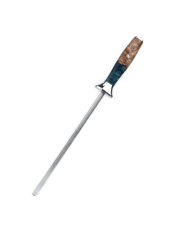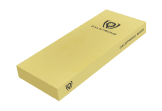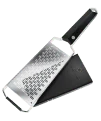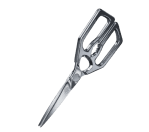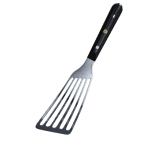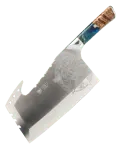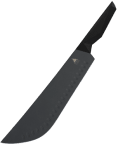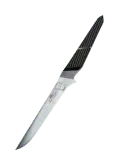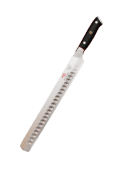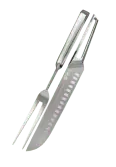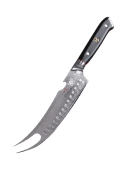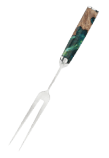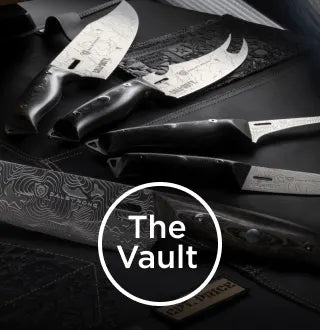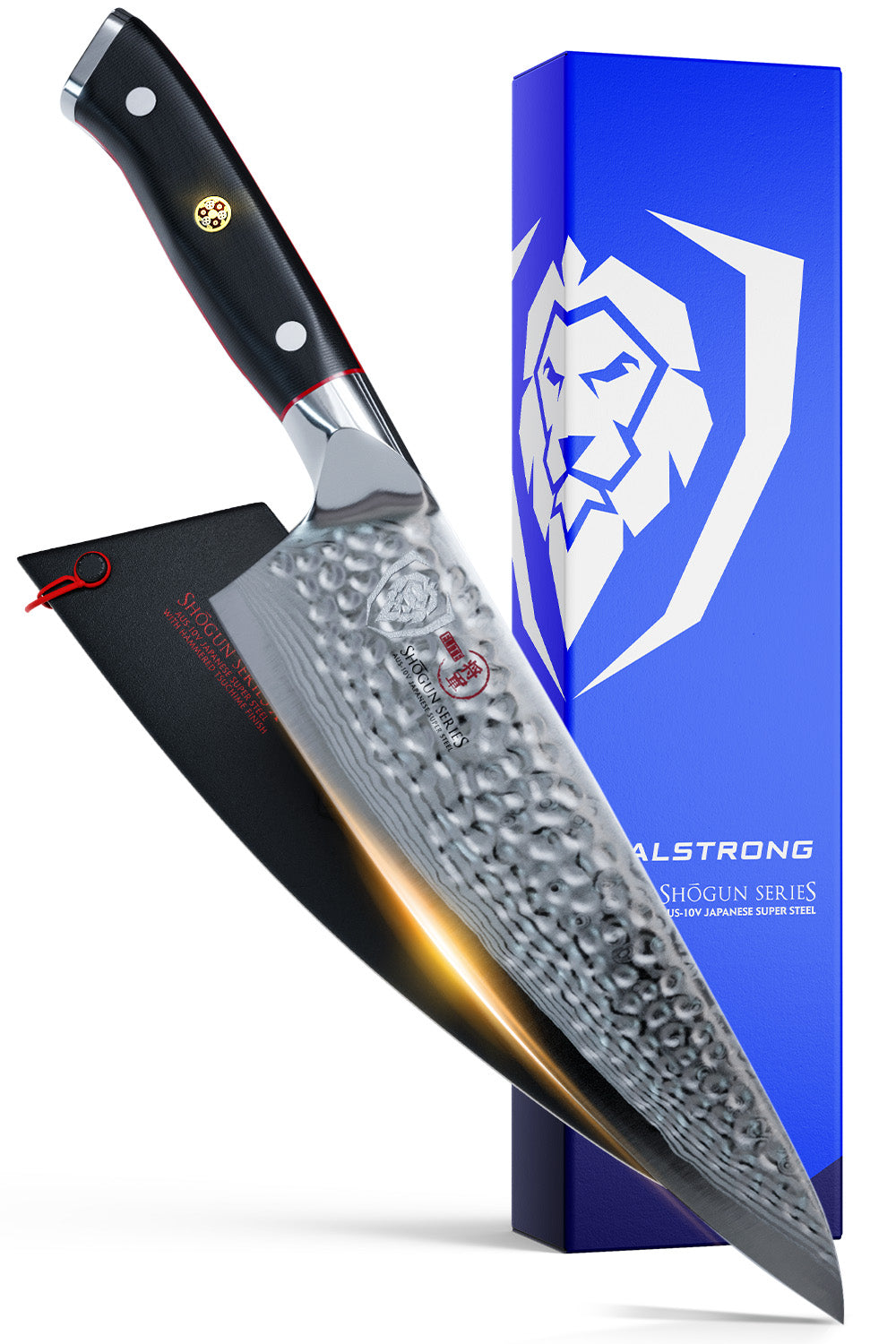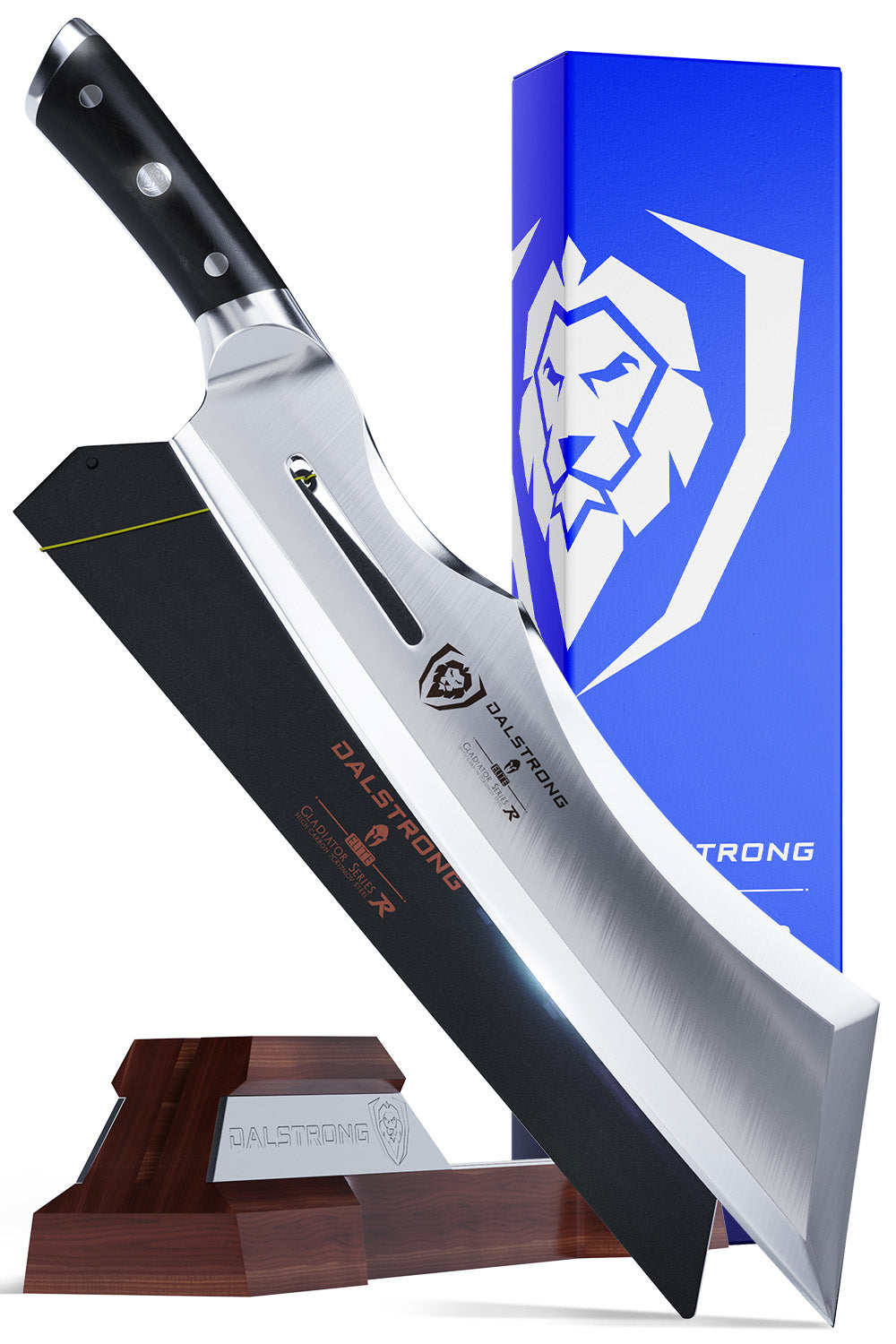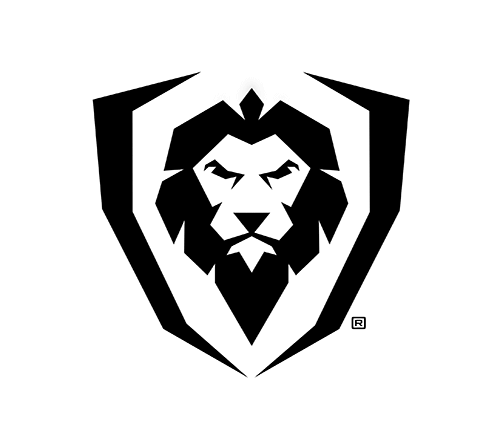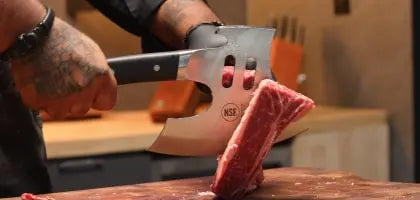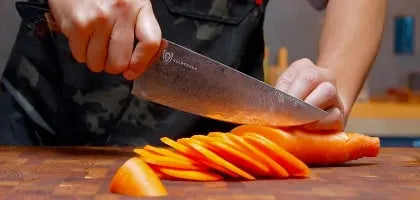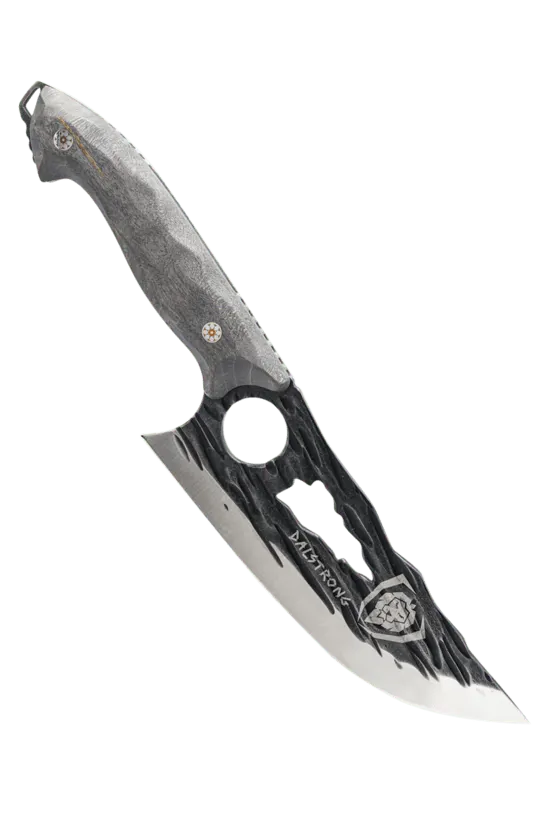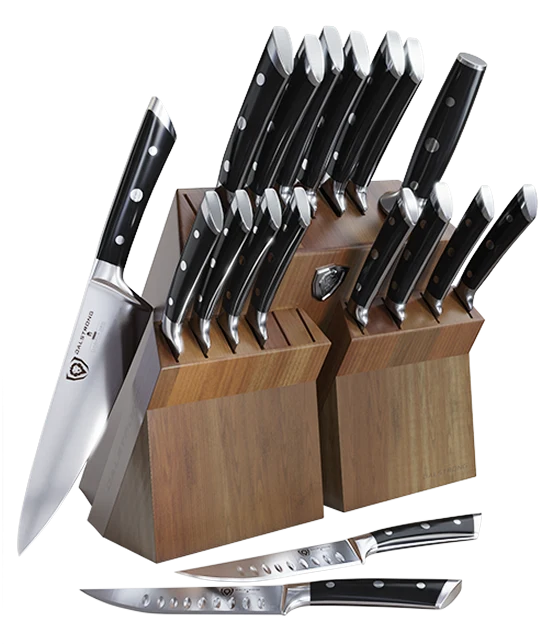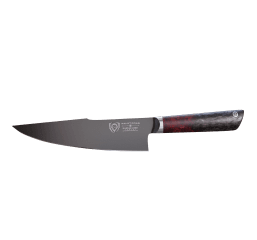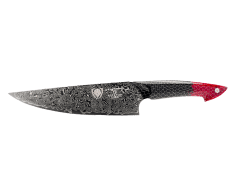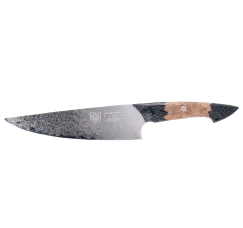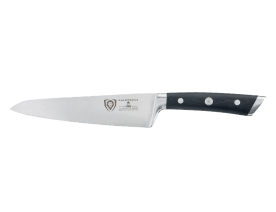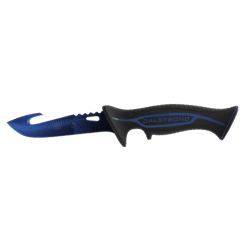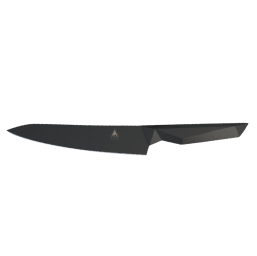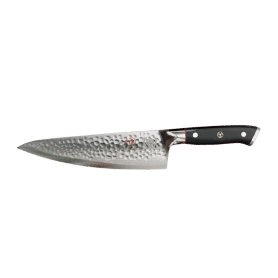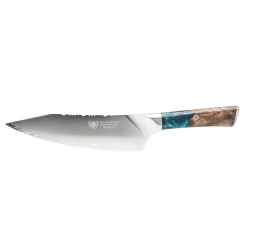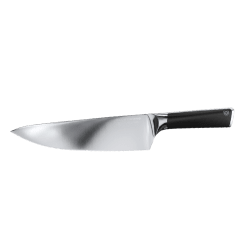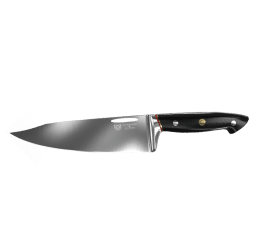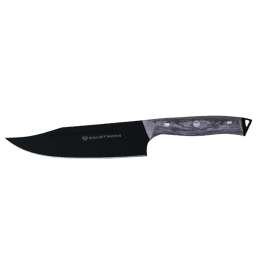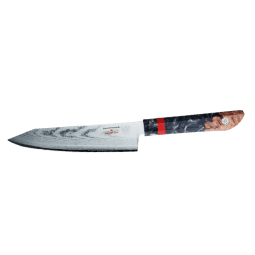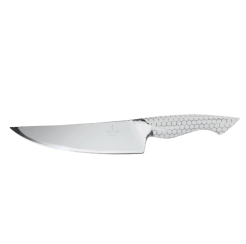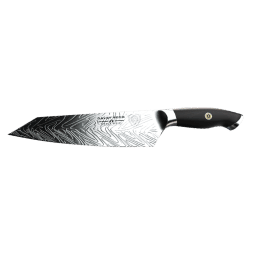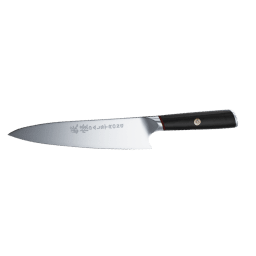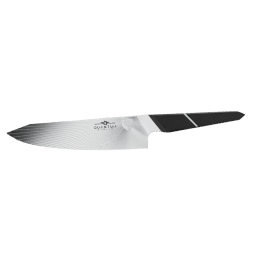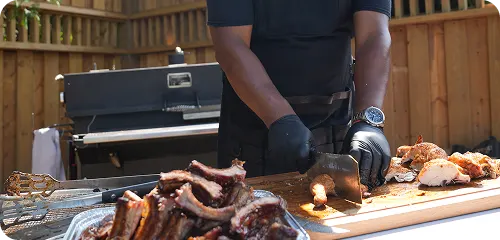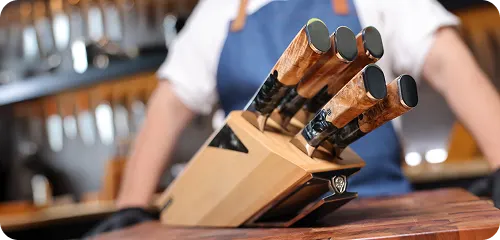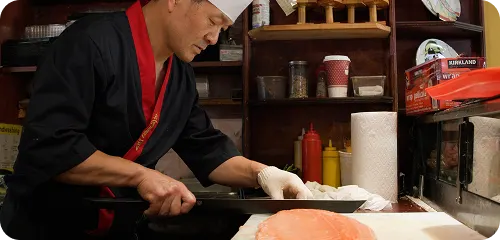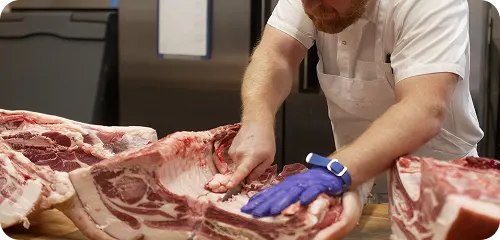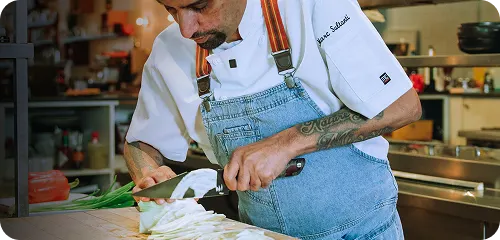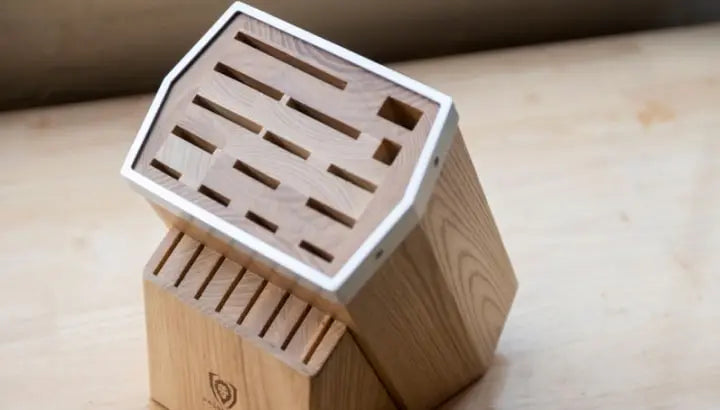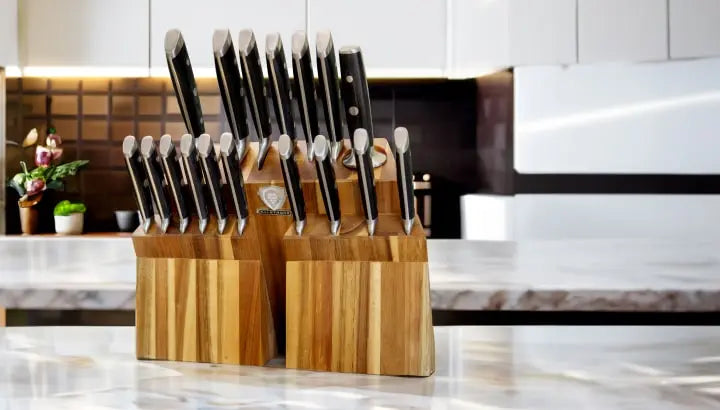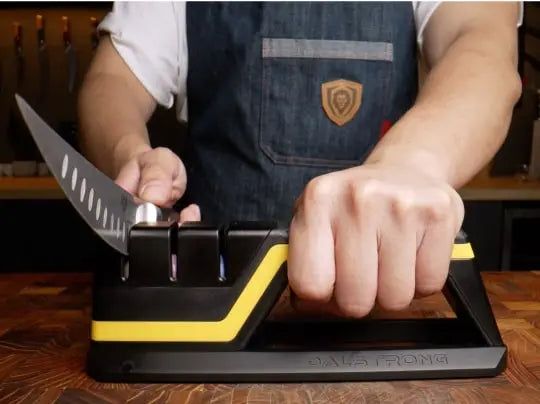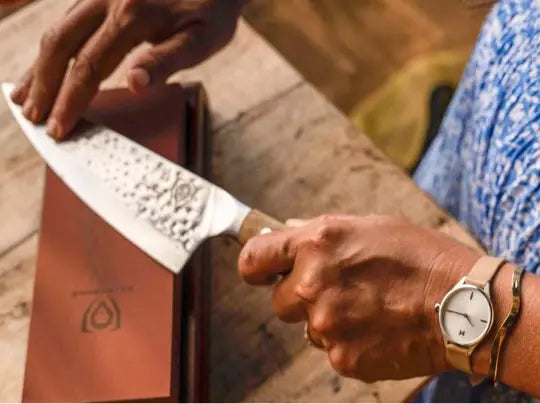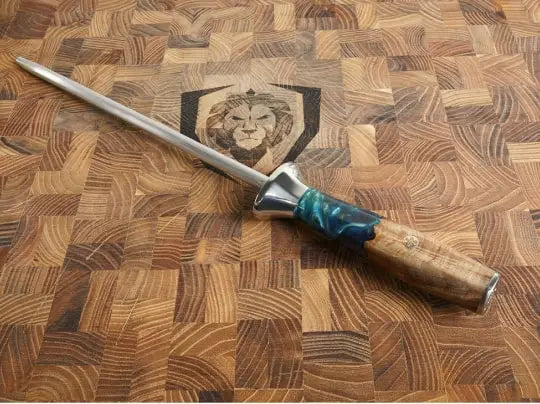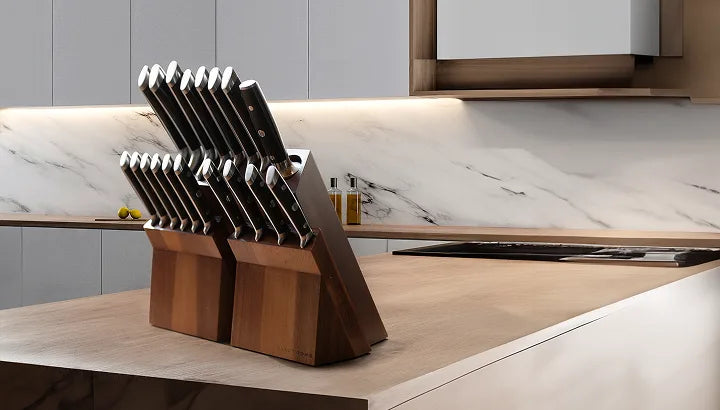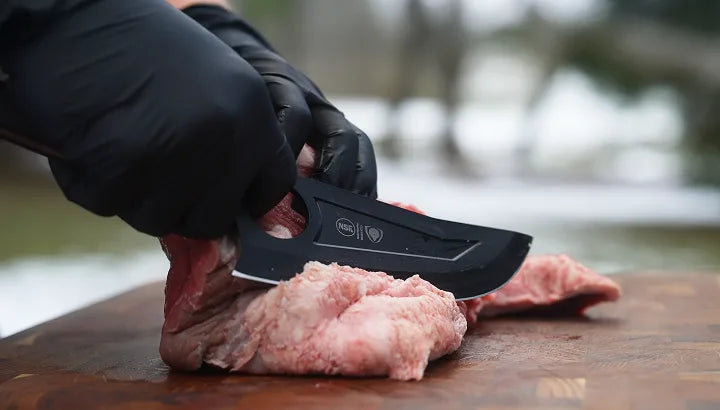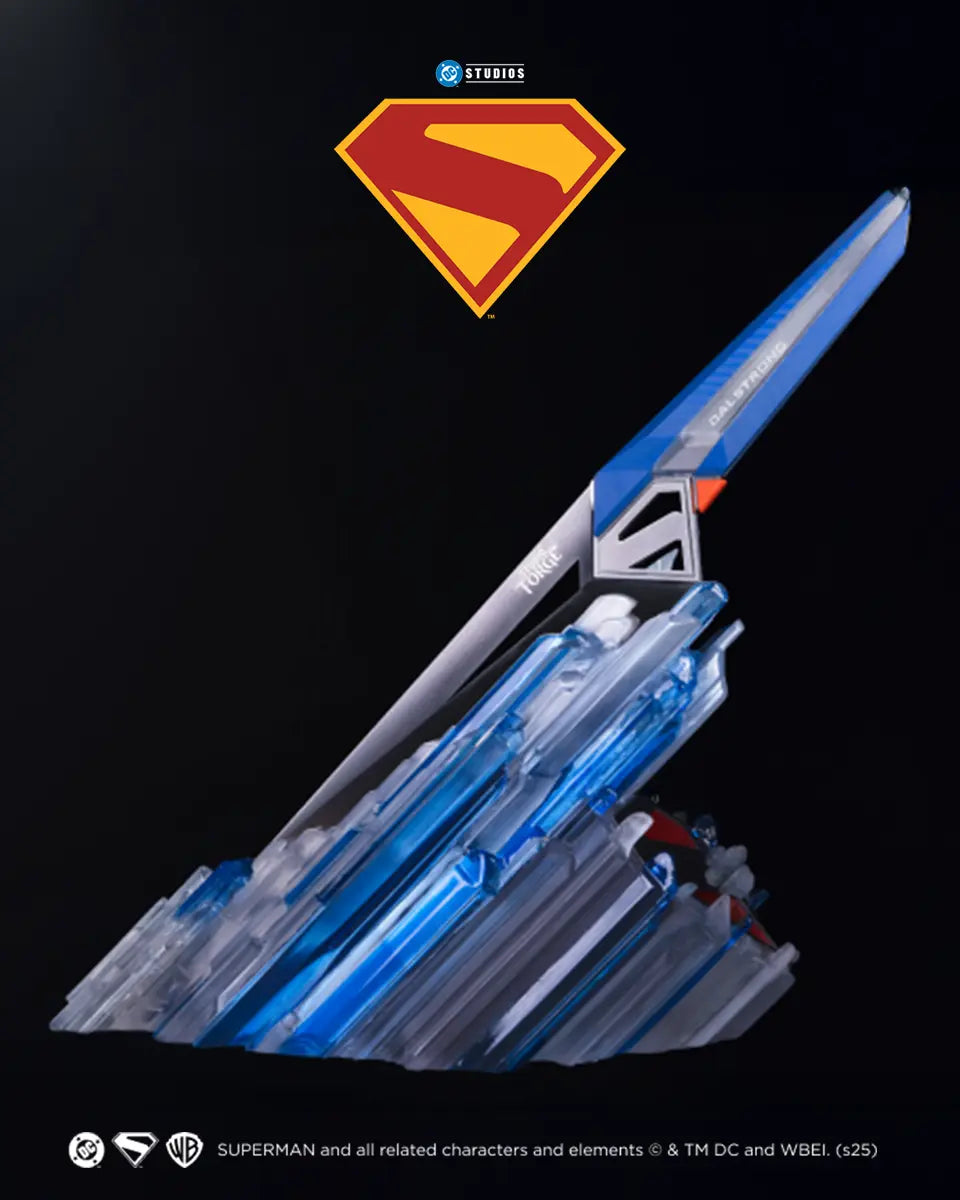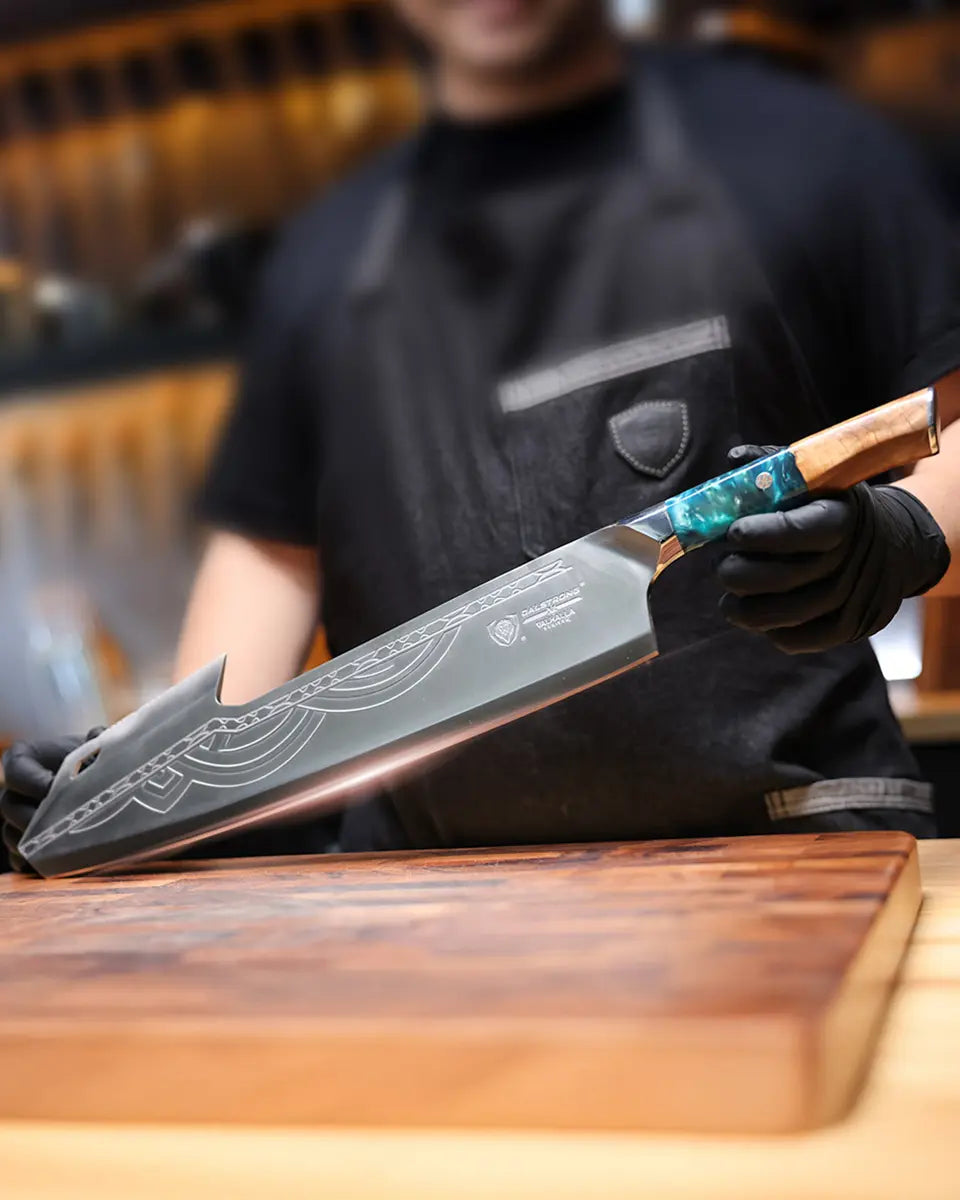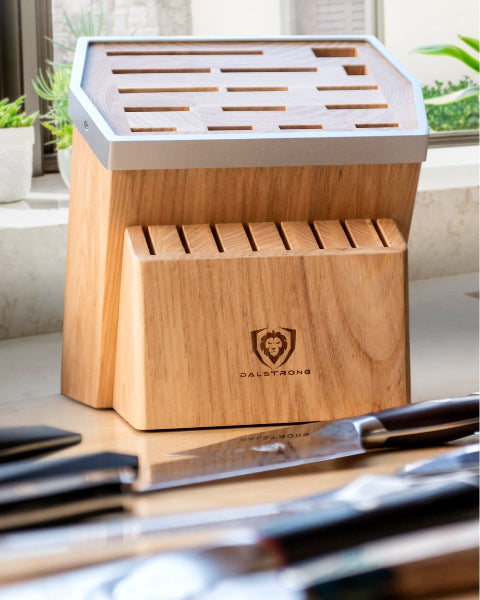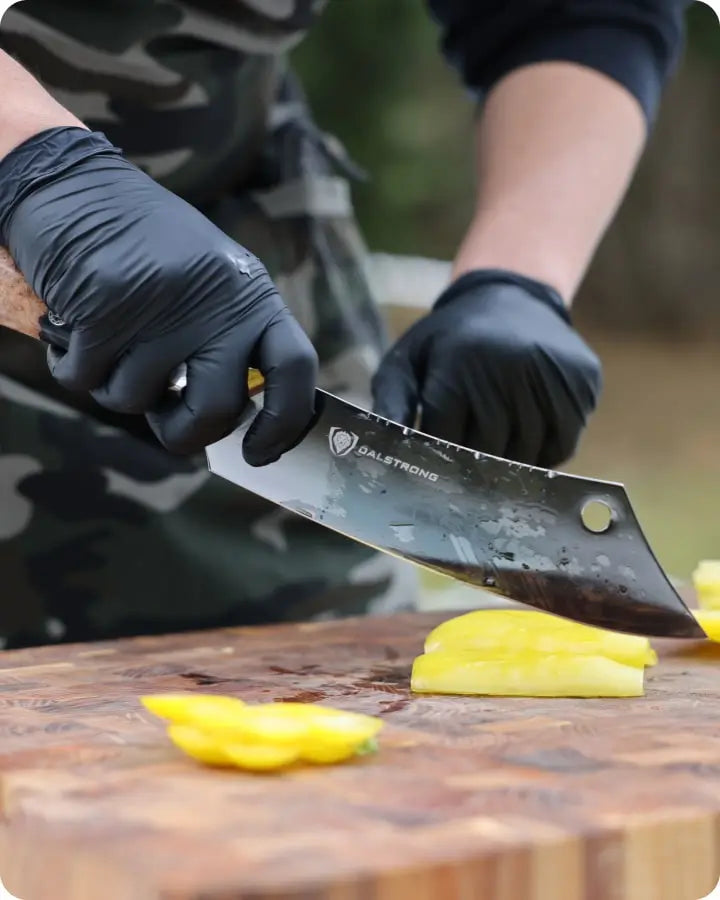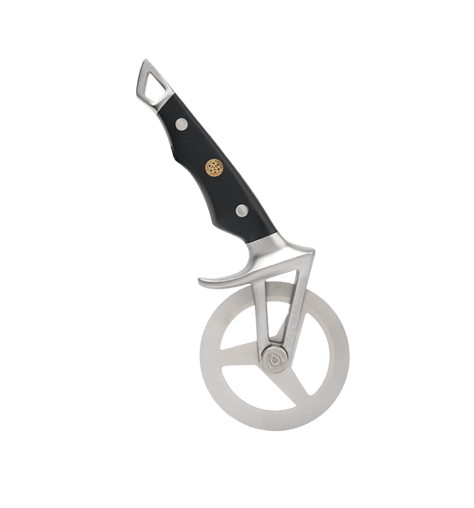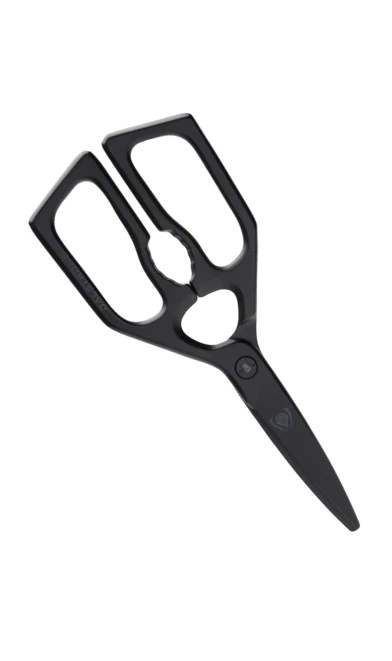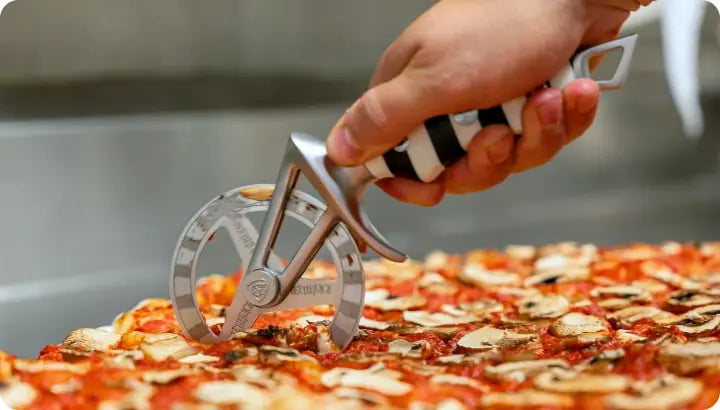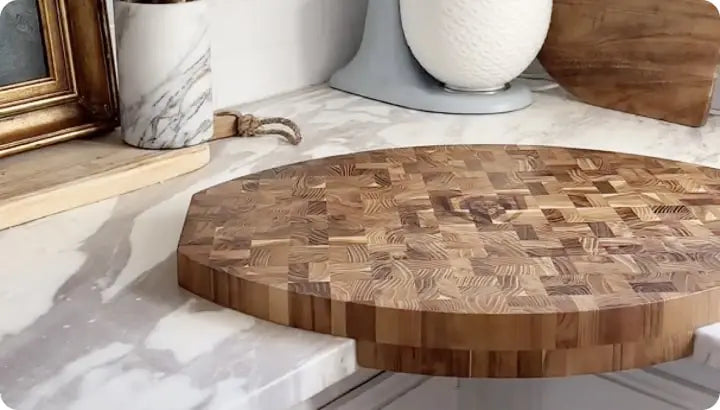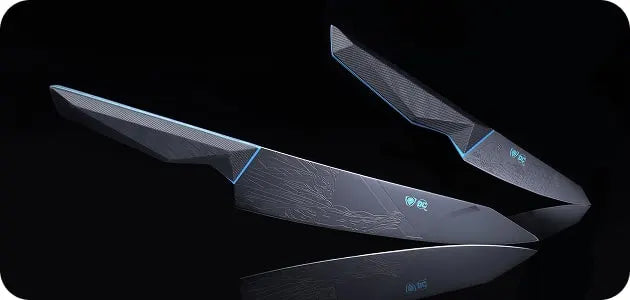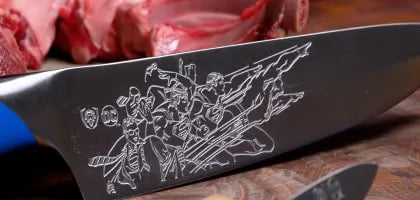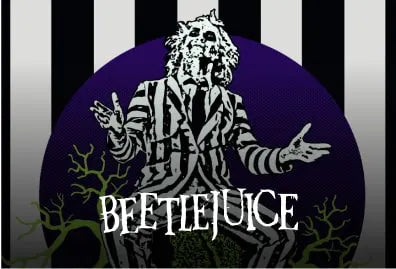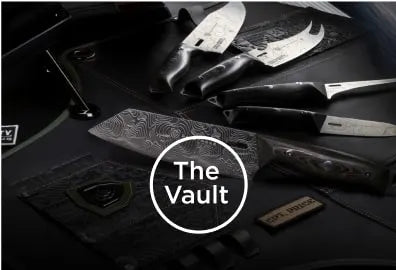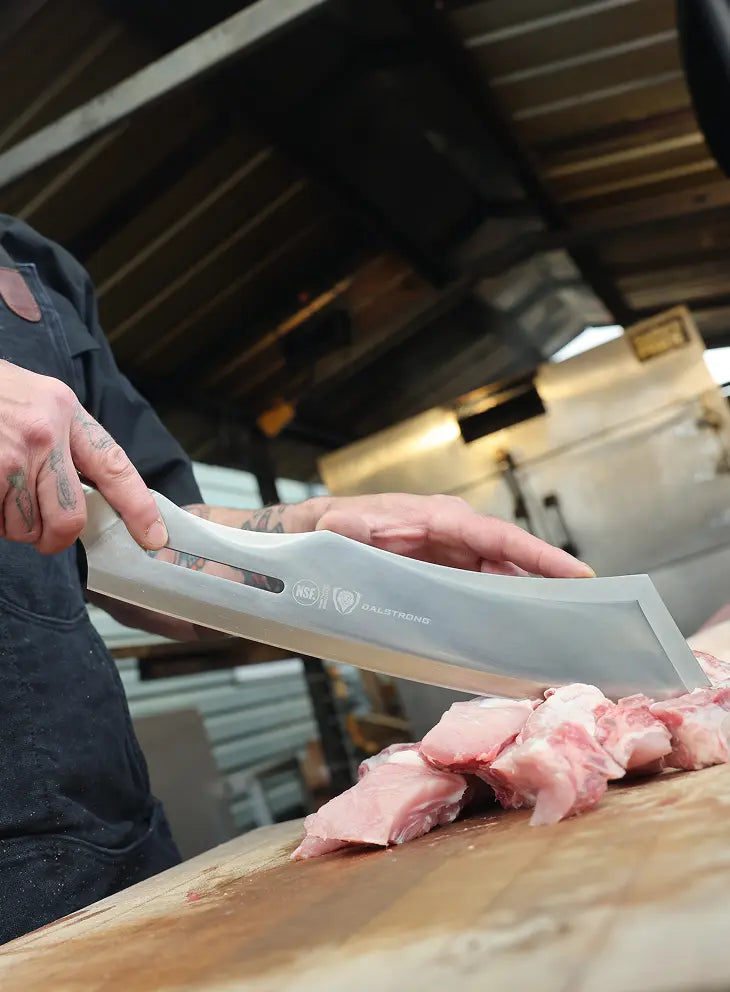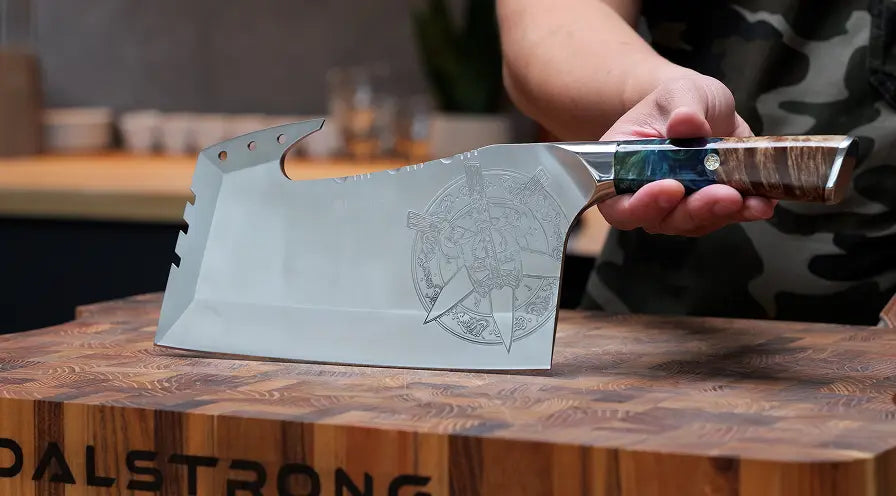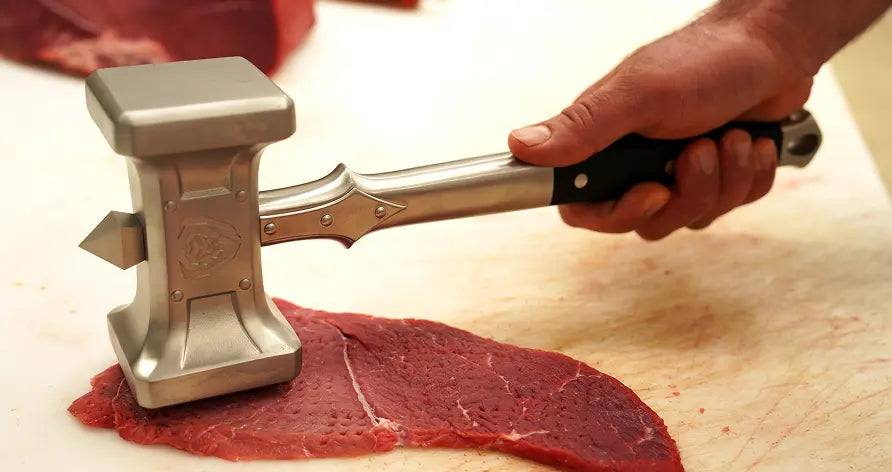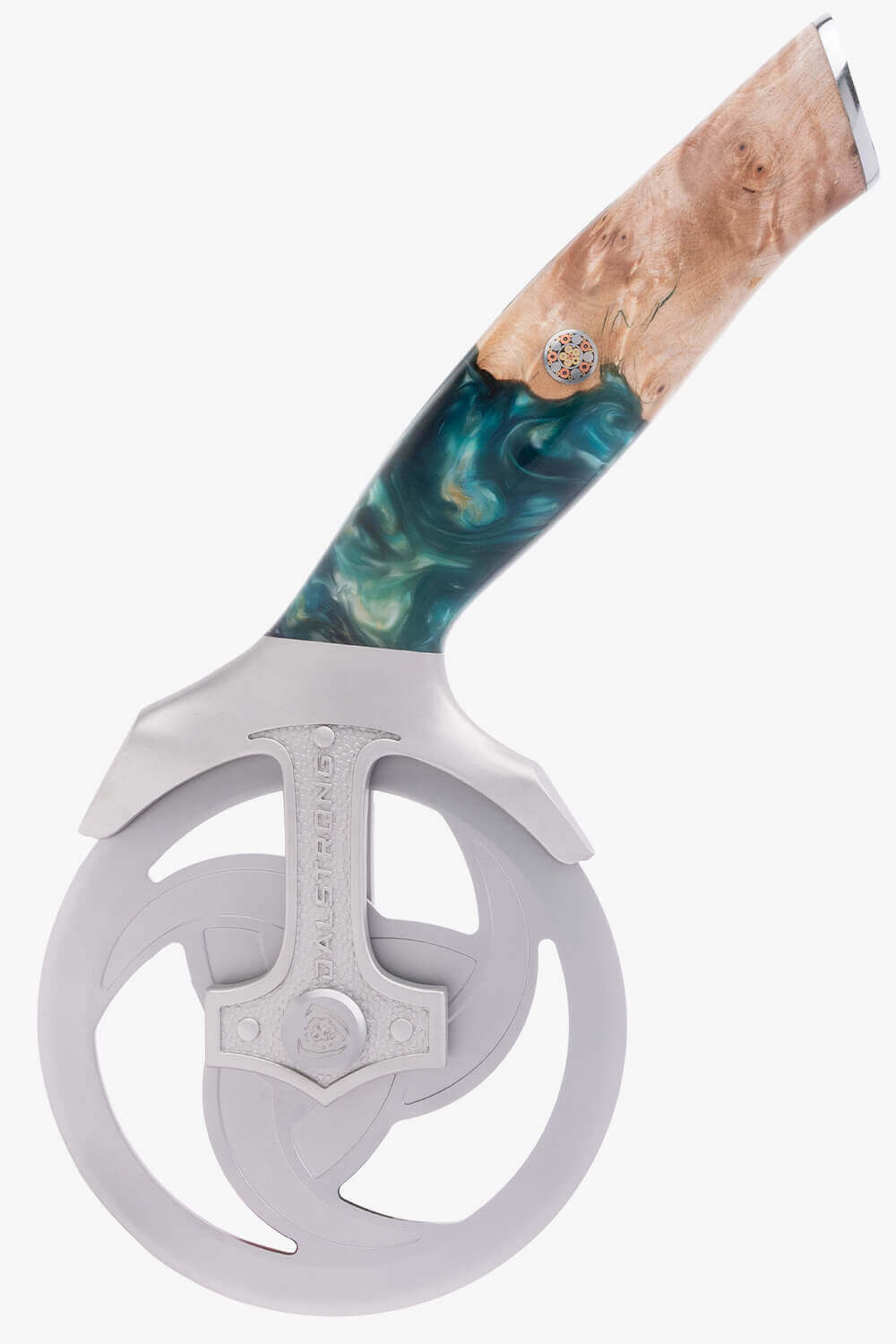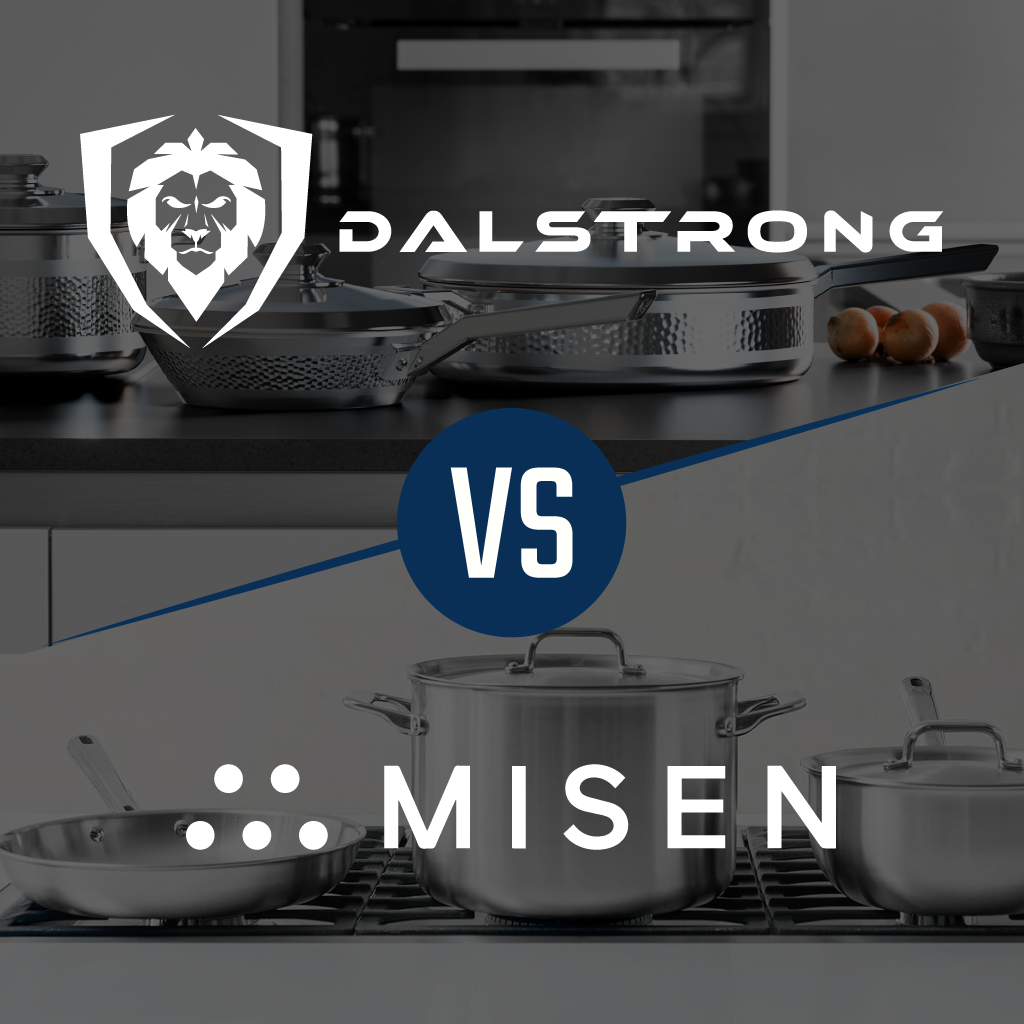
Misen Cookware vs. Dalstrong Cookware
Sometimes, when you’re searching for the best in high-quality cookware, you are faced with a decision between two companies that have made a name for themselves for producing fantastic stuff. When you reach that point, you basically can’t go wrong because you know whichever choice you ultimately end up going with, you’re going to end up with a great product.
But sometimes there’s more to purchasing a product than simply getting the product itself. In some cases, you’re joining a community of customers and kitchen enthusiasts like yourself, and you can get much more out of the transaction than just a really good saucepan. If you're looking to dig a little deeper, it helps to learn the origins of these products as well as the companies’ histories and how they interact with their customer base.
Now we have the case of Misen and Dalstrong, two relatively young companies producing high-quality cooking pans. Which one should you go with? Read our detailed breakdown below.
Content Overview:
- Dalstrong And Misen Company Overviews
- Dalstrong Cookware
- Misen Cookware
- Dalstrong Vs. Misen: Differences And Similarities
- Dalstrong Vs. Misen: Pros And Cons
- The Bottom Line
- Frequently Asked Questions
1. Dalstrong And Misen Company Overviews

The world of cookware has plenty of venerable names that have been around for centuries creating high-quality products for discerning home cooks. But there’s also a batch of young new companies looking to rock the boat with innovation and a fresh approach to production and aesthetics.
Such is the case with Misen and Dalstrong, two companies that have only been around for a relatively short time. And yet, for as little time as they’ve been around, they’ve each earned a name for themselves as market disruptors and innovators, each in different ways. Both companies bring a different approach to the production and distribution of their products.
Before we delve into the specifics of what makes each company stand out, let’s take a look at each cookware maker’s history.
Misen: History

As mentioned earlier, many companies in kitchenware come from a long tradition of cookware production, some even being around for hundreds of years. Misen stands out from these companies for the simple reason that they first launched back in 2015. Not only is this a lot more recent than most other companies, but how they launched is itself quite innovative.
Misen first launched in 2015 on Kickstarter. That’s right, Kickstarter; the crowd-funding platform that’s served as the launching pad to many a revolutionary idea (as well as its fair amount of duds over the years). And when founder Omar Rada brought the company to life, they were singularly focused on one product: a single chef’s knife.
Back in 2015, the Misen chef knife was not only its signature product – it was their only product. Adopting a name derived from the culinary term “mise en place” – meaning “to put in place” – the company was founded on the principle that quality products should not break the bank. By bringing the product straight to consumers they’re eliminating the middleman and thus bringing the price down.
Over the next several years, the company saw great success and quickly expanded from a single chef’s knife to a full range of knives, cookware, and prep tools. Carbon steel pans has been one of their main interests in recent years.
Dalstrong: History

Between the two of these, Dalstrong has been around for longer, but not by much. The company was founded by David Dallaire in Toronto, Canada in 2014, just one year before Misen hit the market on Kickstarter. And while Misen sought to innovate from a production and distribution standpoint, Dalstrong set its sights on design.
Knowing full well that the culinary industry needed a shake-up, Dallaire focused his approach to knifemaking on performance as well as presentation. He understood that buying a quality product is about more than just the product’s functional capabilities, it’s also about aesthetics and design.
Over the following decade, Dalstrong would establish itself as a maker of top-quality knives that also showed off an ornate, visually impressive design. Yes, cutlery and cookware serve a utilitarian purpose, but Dalstrong also sees them as objects of aesthetic value. Their products are as beautiful and varied as they are high-quality performers.
Between the personal touch of their product line and the user community they have fostered, Dalstrong has quietly become one of the most influential companies in the cutlery and cookware space. Dalstrong products are manufactured in a state-of-the-art facility in Yangjiang, China, a city with a rich knife-making tradition dating back almost 1500 years.
2. Dalstrong Cookware

Dalstrong has made a big splash in the knife-making world, creating knives that are as unique, beautiful, and innovative as they are top performers. But that’s not all; over the years, they have also slowly inched their way into the production of top-quality cookware.
Of course, as you might imagine, Dalstrong brought that spirit of innovation and aesthetics that has defined their knives and made them so quickly into a household name and applied them to cookware. Not only are these products top-of-the-line when it comes to performance, but they’re also unique and beautiful in their own right.
Dalstrong currently offers two series of stainless steel cookware: their Oberon series and their Avalon series. The fact that the series derive their names from Arthurian legend should clue you in on the design slant of these amazing pieces of kitchen gadgetry.
The stainless steel pots and pans in the Oberon series feature stainless steel with an aluminum core that is light and conductive, allowing for more even heating throughout the entire pan. Meanwhile, the stainless steel pots and pans in the Avalon series offer a copper core. Copper is a lighter material as well as thinner than aluminum, and it has many of the same advantages.
Each of the series offers different products of different sizes, aimed at specific customer needs as well as design preferences (some come with a gorgeous hammered finish that truly recalls the medieval weapons they draw inspiration from). There’s also variety in the non-stick lining on the inner surface of the stainless steel pots and pans. Not only that, but through each series, they each offer both individual items as well as bundled cookware sets to cover just about every need.
In addition to their cookware sets, Dalstrong offers an enormous array of knives, BBQ cutting tools, and culinary utensils that you won’t find with Misen.
3. Misen Cookware

As Misen’s star began to grow and they started expanding beyond their initial product offering (the Misen chefs knife, which is still their flagship product) they also began expanding into the world of cookware. But their approach continues to be the same.
When it comes to design and variety, Misen sticks to the tried and true. What they bring to the table (or, I guess, in this case, the cutting board) is a straightforward approach. Simple and solid products, with classic and functional design. Without the bells and whistles of flashy design choices or a focus on aesthetics. This may be attractive to customers who are drawn to a more subdued look.
Misen cookware includes various products such as their Misen carbon steel pan, Misen non stick pan, and stainless steel pan. They include various size options for sauté pans to fit customers’ various needs, and their products tend to be more affordable than similar products in the market.
Carbon steel cookware is a recent and important addition to the Misen catalog. It has many of the benefits of cast iron but is more lightweight and easier to handle than cast iron. Their carbon steel cookware is quickly becoming one of their main draws, and it’s easy to see them continue growing in that direction. It is unclear if Dalstrong has any plans to incorporate carbon steel cookware into their catalog.
4. Dalstrong Vs. Misen Cookware: Differences And Similarities
Let’s take a quick overhead look at both companies and how they differ.

These two young companies are spearheading the world of cookware in their own ways. You can’t go wrong with either, but here are a few ways they differ.
Materials
The main difference between Misen cookware and Dalstrong cookware when it comes to materials is the fact that Misen has carbon steel pans and stainless steel pans. Meanwhile, Dalstrong offers stainless steel cookware with a copper core or aluminum core.
Carbon steel cookware has grown in popularity in recent years, but it’s a mixed bag when it comes to results; it does not heat as evenly as stainless steel does, it’s more susceptible to rust, and it can have a nasty reaction to acidic foods. Not only this, many carbon steel pots and pans require seasoning, a long and drawn-out process that not many home cooks have time or patience for.
When it comes to the nonstick cookware, both companies offer options for their customers. Both Dalstrong and Misen offer nonstick pans, though the nonstick technology they use is different; Dalstrong uses the ETERNA nonstick coating while the Misen nonstick pan is made of titanium infused plasma primer.
In any case, whether it’s carbon steel or stainless steel, both companies make products with top-of-the-line materials; they are sturdy and will last a lifetime.
Appearance
We’re delving into the waters of personal preference here, so there’s always a huge caveat to be made before getting into the topic of appearance.
Dalstrong has made a name for itself as a company that cares deeply about the artfulness of its products. Not only are their knives often stunning to look at, but their cookware is also absolutely magnificent. Take, for example, this beautiful stainless steel 10” frying pan and nonstick skillet from the Avalon series. With a midnight-black color and a hammered finish, this piece is gorgeous and will get people talking.
It’s not all hammered finishes and fancy flourishes. Dalstrong cookware can also feature clean, classic looks. Take, for instance, this stainless steel 6-piece cookware set from the Oberon series, which is immaculate in its design. Their take on timelessness.
Meanwhile, Misen’s design choices are more on the utilitarian side. Their carbon steel cookware is not plain, but it isn’t particularly flashy either. Neither their knives nor their carbon steel cookware pays particularly close attention to the visual presentation, choosing to adopt a clean and simple, straight-down-the-middle design. If you’re the kind of person who prefers unobtrusive beauty to flashiness, perhaps that’s more your speed.
Attitude
This is a tough one to compare, especially because both companies have a lot in common when it comes to their drive and their motivations. They’re both young disruptors, breaking into an industry that’s populated by giants that have been around for centuries. They’re both driven by innovation, even if their approach to it is slightly different.
But there are clear differences in how they go about things, and it has to do with their approach to design. Dalstrong is a company that recognizes the value of kitchen tools as beautiful objects. They understand that the objects we choose to surround ourselves with, that we incorporate into our daily lives, are as much an expression of who we are as the pictures we choose to hang up in our living room. And they design their products with this in mind.
Misen, meanwhile, is more focused on keeping production costs low and creating high-quality tools without necessarily paying much attention to the design aspect. Their aesthetic is relatively buttoned-down, without many frills. And in this sense, they fall a bit short on ambition when it comes to their products.
Variety
Misen offers a wider variety of materials to choose from, but Dalstrong offers a wider variety of designs. Each one of these approaches has its pros and cons. But the fact that Dalstrong cookware’s two main series are both stainless steel with aluminum or copper core means that either one is a fantastic choice when it comes to performance, while the choices in design are more about appealing to the personal aesthetic of the consumer.
Not only that, but Dalstrong also sells a tremendous variety of knives, accessories, and kitchen tools, such as honing steels and cutting boards.
Cost
Both of these knife companies sell top-of-the-line, premium products, but neither will break the bank. Both companies will cost you considerably less than other premium cookware companies (though probably more than what you can find at the bargain bin). This is because of the steps the companies have taken in the production and distribution of their products.
Not only do both companies cut out the middleman by selling directly to customers through their websites (this also makes it easier for them to offer carbon steel cookware at a good price), they also save costs by establishing their manufacturing plants in China. This is a cost-saving measure that directly reflects on the price of the products.
Customer Service
This one’s a big one. While both companies strive for a good customer service experience (and, by all accounts, it appears they’re successful at delivering it), Dalstrong offers a limited lifetime 100% satisfaction or money-back warranty on their products. This speaks to the tremendous confidence that the company has in its product line.
Misen cookware, meanwhile, has chosen not to offer any kind of warranty on their products.
Community
Both of these companies understand the importance of fostering a community around their products, so their relationship with their customers doesn’t end immediately after the sale. Sharing information on how to best use their cookware, sharing tips and tricks, and engaging with the people who choose to buy their products is an absolute must.
Out of these two companies, Dalstrong has a more active and vibrant community, making a consistent effort to engage and excite their client base. See their social media accounts, for instance; their Facebook page features polls, sharing of stories, opening up the dialogue, and sharing in the enthusiasm of the knives and cookware they sell. The Dalstrong user community is also given access to many resources, like newsletters and their chef blog, which is home to recipes, how-to guides, chef profiles, and more.
Misen cookware broke into the industry through a successful Kickstarter crowd-sourced campaign, so they understand the importance of this type of engagement. However, something happened throughout the last few years causing them to falter in this regard; their user community on Facebook, for instance, has been inactive for nearly a year.
5. Dalstrong Vs. Misen Cookware: Pros And Cons

So it’s coming down to the wire and you want to know which company you should go with. Let’s break it down. What are the pros and cons of Misen cookware and Dalstrong cookware?
Dalstrong
PROS:
- An amazing assortment of high-quality, durable, absolutely gorgeous pots and pans.
- Do you want your cookware to look good? These products are stunning.
- Stainless steel cookware that is dishwasher safe.
- Dalstrong is a safe bet: 100% satisfaction or money-back guarantee.
- Wide variety of kitchen knives and other tools available.
- Active and vibrant customer community, speedy and attentive customer service.
CONS:
- Does not carry carbon steel cookware at this time.
- Young brand, still looking for its identity.
Misen cookware
PROS:
- A company with a long tradition of cutlery production.
- Offers 7 types of cookware including a Dutch oven.
- Carries non stick and stainless steel options.
- Has carbon steel pans as well as stainless steel cookware in their product line.
- Has a range of cookware accessories.
CONS:
- Lacks the personal touch that Dalstrong puts into community building.
- Young brand, still searching for its own identity.
- Cookware designs tend to be more plain and conservative.
- Misen cookware reviews show recurring complaints about the polished handles showing smudges.
6. The Bottom Line

These two amazing young companies are a testament to the state of innovation and entrepreneurship in the 21st century. The fact that they’ve been able to break into an industry that’s filled with legacy brands with enormously long histories and carve out a space for themselves within the marketplace is truly remarkable. And the fact that their products are so consistently high quality is the cherry on top.
But when it comes down to it, due to their preference for stainless steel, their choices in design and aesthetic value, as well as their vibrant customer community (and lifetime warranty), we’re going to pick Dalstrong as the best cookware option of the two. Once again, you can’t go wrong with either, but Dalstrong’s got our vote.
7. Frequently Asked Questions

Where is Misen cookware made?
Misen carbon steel and stainless steel cookware and kitchen knives are manufactured in China.
Is the Misen pan toxic?
Misen pans are non-toxic as long as they stay within the safe temperature area.
Can I put my Misen non-stick pan in the oven?
Misen stainless steel cookware is oven safe up to 500°F. Their non-stick pans are oven safe up to 450°F, and carbon steel pans are oven safe up to 500°F with the silicone handles and up to 900°F without the silicone handles.
Where do Misen pans ship from?
Misen’s orders to the U.S. and Canada are shipped from their warehouse facility located in Kentucky, USA.
Check Out Dalstrong Cookware Today
Written by Jorge FarahBorn on the coast of Colombia and based in Buenos Aires, Jorge is a cooking enthusiast and kitchenware obsessive with a tremendous amount of opinions.


